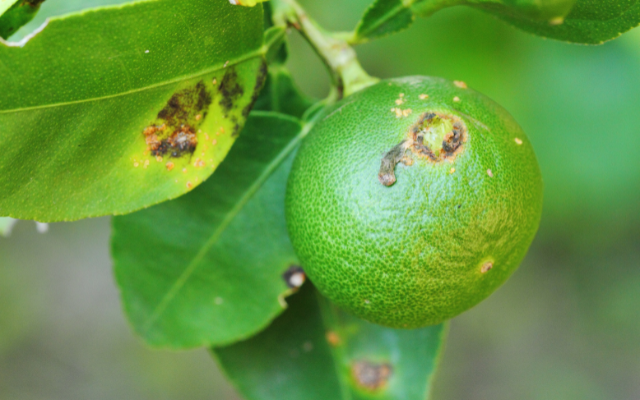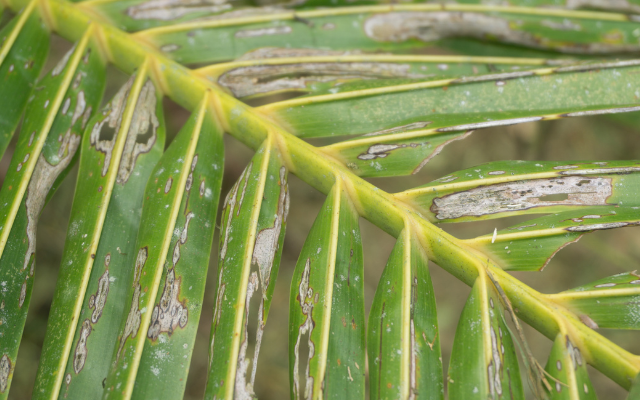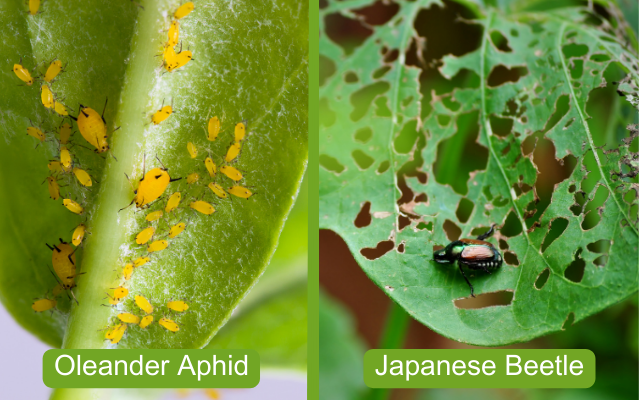Pests & Diseases
Healthy Garden Ecosystems
It’s vital that the overall ecosystem of your garden is healthy, balanced and monitored. Two of the biggest challenges gardeners face in maintaining healthy and vibrant landscapes are pests and diseases in the garden. Gardening enthusiasts invest their time, effort and passion into creating lush and thriving green spaces but the delicate balance of nature can sometimes be disrupted by a variety of pests and diseases. From tiny insects that feed on leaves to hard to detect pathogens that thrive in the soil, these threats can undermine the beauty and productivity of your garden, leaving you frustrated and defeated. Whether you’re an experienced gardener or just beginning to cultivate your green space, its important that you are able to recognise the signs of trouble, implement preventative measures and employ environmentally friendly solutions. By arming yourself with information and adopting proactive practices, you can foster a resilient and flourishing garden that stands up to the challenges posed by pests and diseases.
Plant Disease
Plant diseases are dangerous for the overall health and vitality of your individual plants and to your overall garden. Diseases are caused by various forms of pathogens which can include viruses, bacteria and fungus. These pathogens can adversely affect the equilibrium of the plant and lead to adverse changes in the plants overall appearance, growth and production of flowers, fruit or vegetables.General symptoms of plant disease:
- wilting, discoloured or malformed leaves
- lesions or disfiguration of foliage or branches
- rotting
- choose disease resistant varieties
- rotate plants and pots
- maintain a clean and well cleared garden
- water, mulch, prune and fertilise per the plants specific requirements for optimum health


Garden Pests


Generally references to garden pests means any organism that creates damage in your garden. Garden pests can wreak havoc in your garden if they are not controlled by damaging plants and their foliage or creating an imbalance in the ecosystem which is ultimately damaging to plant growth and yields. Destructive visitors to the garden such as possums, rats, mice, birds and various forms of insects will need specific action taken to deter them from causing havoc.
- Larger pests such as possums, rats, mice and birds can be deterred by eliminating shelter and food sources. This means keeping grass very trim, garden beds well maintained and weeded, edible gardens covered with netting and compost in well sealed containers.
- Insects come in many and various forms and each will have different treatment options. For example, the Japanese beetle (pictured) ruins the aesthetic of a plant by feeding on foliage and fruits can be controlled by spraying with a mixture of water and dishwashing detergent and the Oleander Aphid which sucks sap and creates a sticky excrement that can grow mould but can be controlled by a low toxicity pesticide insecticidal soap
Organic Pest Control
Taking an organic approach to pest control means looking at it holistically, by minimising harm to the environment and ensuring beneficial organisms can thrive. Ultimately this means removing any reliance on synthetic chemicals and using organic methods to harness the power of nature. Key strategy’s for an organic approach to pest control include:
- introducing beneficial insects such as ladybugs and predatory nematodes to prey on harmful pests. This creates a natural balance in the ecosystem.
- Companion planting to pair plants that repel or distract pests.
- Composting and Mulching to build organic, rich and healthy soil to support plants being naturally resilient to some pests
- Using natural deterrents such as Neem Oil, diatomaceous earth and garlic sprays can also be used.
Pest Control Indoors
Indoor plant environment can still attract unwanted pests like aphids, mealybugs and spider mites. Its important to stay vigilant with your indoor plants by:
- regularly inspecting your plants for any sign of pests
- separating new additions until you are sure they do not contain any pests
- keeping the plants well tended with rich soil, no dead leaf debris, appropriate watering and sunlight for optimum heath and increasing their ability to survive any possible pest infestation
- Considering introducing beneficial insects and using natural deterrents. Consider also avoiding the use of synthetic chemicals on indoor plants particularly in smaller spaces due to proximity to people and and confined spaces.
